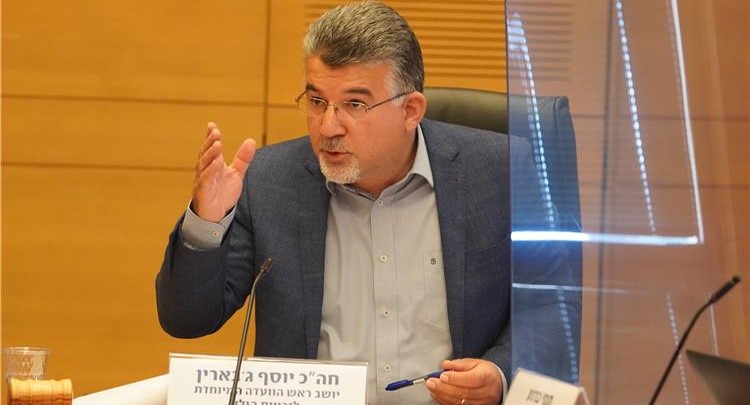The Knesset’s Committee for the Rights of the Child chaired by Hadash MK Youssef Jabareen (Joint List) held another of its meetings on Tuesday, December 1, to continue its assessment of the uneven distribution of computers and the comparative state of internet infrastructures throughout Israel, technologies which have become so vital for learning during the coronavirus pandemic. Andreas Schleicher, Director for Education and Skills, and Special Advisor on Education Policy to the Secretary-General at the Organization for Economic Cooperation and Development (OECD) participated in the meeting via video conferencing.

Hadash MK Youssef Jabareen (Joint List) chairs the meeting of the Knesset’s Special Committee on the Rights of the Child, Tuesday, December 1, 2020. (Photo: Knesset)
Committee Chairman Jabareen opened the discussion saying, “Nearly nine months have passed since the first lockdown of the coronavirus crisis, and the committee continues to monitor the difficulties involved in distance learning, which stem from a shortage of digital devices, as well as problems with internet infrastructures. The shortage creates huge gaps [between pupils]. According to estimates by the Education Ministry, 150,000 computers are needed, while the committee heard from the bodies working in the field that [actually] 400,000 are needed. The education system has still not functioning in communities with infection statuses of orange and red, and it is possible that we are heading towards a third lockdown; so it’s vital that we make certain that these children will be able to learn, and thereby save the school year for them.”
The OECD’s Schleicher told the committee that distance learning has become a “lifeline” for education systems around the world, but not all of the social needs have been addressed. Alongside interesting social and technological innovations the crisis has created, inequality in pupils’ achievement levels has only worsened, Schleicher explained. The crisis may not have created inequality, but it has certainly exacerbated it, he said.
In Israel, Schleicher noted, there is a “vast discrepancy between the grades of children from families in the highest income bracket and children from families in the lowest income bracket.” “The average appears healthy, but the gaps and the lack of equality in learning are very large,” he said. Israel, like the US, also ranks low in the ability to adjust its resources to needs, meaning that disadvantaged communities also get lower quality teachers. Schleicher explained that wide gaps are not necessarily the result of a lack of resources. They may also be the result of the inability of schools and teachers to utilize them. As a positive example he cited China where 90% of teachers know how to use distance learning technologies.
Asked by Jabareen whether Israel should keep the physical in-class education system open in the event of a third wave, Schleicher said that because distance learning only broadens the gaps between children, keeping schools open would be the right thing to do.
Jabareen summed up the meeting, saying the committee calls on the state to adopt Schleicher’s recommendations to invest most of the resources in schools located in weaker communities, and to formulate a plan for strengthening the education system towards the post-pandemic era.


